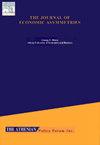宏观经济不对称及其对金融科技生态系统增长的影响:全球和区域视角
Q1 Economics, Econometrics and Finance
引用次数: 0
摘要
本研究考察了2005年至2022年间影响103个国家金融科技生态系统形成和发展的不对称宏观经济因素,提供了全球和区域视角。该研究使用固定效应负二项回归模型作为主要方法,确定了关键的宏观经济驱动因素,如人均GDP、通货膨胀、金融发展和实际利率,这些因素对金融科技形成的影响在不同地区差异很大。此外,采用一种适用于计数面板数据的非对称误差修正模型(AECM)作为补充分析,以捕捉宏观经济变量的积极和消极变化的差异效应。调查结果揭示了包括全球金融危机和2019冠状病毒病大流行在内的全球危机如何不均匀地扰乱了金融科技增长,暴露了区域脆弱性和机遇。欧洲的金融科技扩张主要是由教育和人力资本投资推动的,而亚洲和海湾合作委员会(GCC)国家对宏观经济稳定的响应更大。相比之下,非洲金融科技生态系统严重依赖金融发展来促进增长。对滞后变量的稳健性检查进一步验证了这些驱动因素的时间效应,强调了它们的长期影响。通过探索宏观经济不对称在塑造金融科技生态系统中的作用,本研究为决策者和投资者提供了重要见解,旨在增强弹性,促进适应每个地区独特经济环境的可持续增长。本文章由计算机程序翻译,如有差异,请以英文原文为准。
Macroeconomic asymmetries and their influence on fintech ecosystem growth: A global and regional perspective
This study examines the asymmetric macroeconomic factors influencing the formation and growth of fintech ecosystems across 103 countries from 2005 to 2022, offering both global and regional perspectives. Using a fixed-effects negative binomial regression model as the primary methodology, the research identifies key macroeconomic drivers—such as GDP per capita, inflation, financial development, and real interest rates—whose impacts on fintech formation vary significantly across regions. Additionally, an adapted Asymmetric Error Correction Model (AECM) for count panel data is employed as a supplementary analysis to capture the differential effects of positive and negative changes in macroeconomic variables. The findings reveal how global crises, including the Global Financial Crisis (GFC) and the COVID-19 pandemic, have unevenly disrupted fintech growth, exposing regional vulnerabilities and opportunities. Europe's fintech expansion is primarily driven by investments in education and human capital, while Asia and the Gulf Cooperation Council (GCC) countries are more responsive to macroeconomic stability. In contrast, African fintech ecosystems rely heavily on financial development to foster growth. Robustness checks with lagged variables further validate the temporal effects of these drivers, emphasizing their long-term implications. By exploring the role of macroeconomic asymmetries in shaping fintech ecosystems, this study provides critical insights for policymakers and investors aiming to enhance resilience and foster sustainable growth tailored to the distinct economic environments of each region.
求助全文
通过发布文献求助,成功后即可免费获取论文全文。
去求助
来源期刊

Journal of Economic Asymmetries
Economics, Econometrics and Finance-Economics, Econometrics and Finance (all)
CiteScore
4.80
自引率
0.00%
发文量
42
审稿时长
50 days
 求助内容:
求助内容: 应助结果提醒方式:
应助结果提醒方式:


